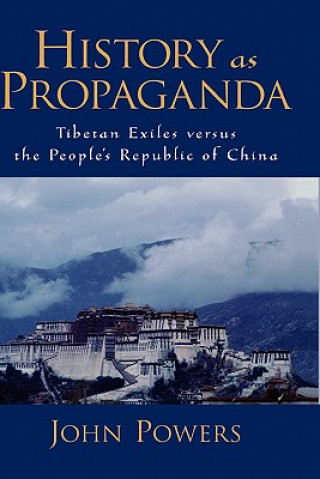
Code: 04516366
History As Propaganda
by John Powers
Despite Chinese efforts to stop foreign countries from granting him visas, the Dalai Lama has become one of the most recognizable and best loved people on the planet, drawing enormous crowds wherever he goes. By contrast, China's ... more
- Language:
 English
English - Binding: Hardback
- Number of pages: 224
Publisher: Oxford University Press Inc, 2004
- More about this

You might also like
-

State Space Approach to Canonical Factorization with Applications
154.90 € -

Propaganda, Power and Persuasion
28.15 € -4 % -

Un Generatore Di Schemi Sudoku in Java
10.36 € -1 %
Give this book as a present today
- Order book and choose Gift Order.
- We will send you book gift voucher at once. You can give it out to anyone.
- Book will be send to donee, nothing more to care about.
More about History As Propaganda
You get 210 loyalty points
 Book synopsis
Book synopsis
Despite Chinese efforts to stop foreign countries from granting him visas, the Dalai Lama has become one of the most recognizable and best loved people on the planet, drawing enormous crowds wherever he goes. By contrast, China's charismatically-challenged leaders attract crowds of protestors waving Tibetan flags and shouting "Free Tibet!" whenever they visit foreign countries. By now most Westerners probably think they understand the political situation in Tibet. But, John Powers argues, most Western scholars of Tibet evince a bias in favor of one side or the other in this continuing struggle. Some of the most emotionally charged rhetoric, says Powers, is found in studies of Tibetan history. History is viewed by both sides as crucial to their claims, and both invest a great deal of energy in producing works that purport to tell the "truth" about Tibet's past. Powers shows that the two sides' views are mutually incompatible and that both sides sincerely believe what they say. Both are operating within a particular psychological context in which certain assumptions guide their inquiry and predetermine their conclusions. Both are so thoroughly convinced of the utter rightness of their paradigms that they cannot even imagine that someone might sincerely hold the opposing view, and so they accuse their opponents of deliberately lying and covering up the "facts" and the "truth." Both reflect the vastly different cultural myths of the societies that produced them. Chinese sources begin with the notion that China is at the center of the world and is the only civilized society, with a mandate to rule over all other countries. Tibetan records are thoroughly infused with Buddhist imagery and presuppositions, and the underlying narrative is the diffusion and glorification of religion. Powers examines works on Tibetan history by Tibetan and Chinese authors that have been produced in English for Western consumption. He finds some of their claims absurd, others highly implausible, some humorous in an unintended way. Both narratives are fraught with internal contradictions and inconsistencies. And even the most ridiculous notions, Powers notes, are often reflected in works by contemporary Western academics. Powers's impartial examination of the competing narratives will help us to better understand the issues involved in debates about Tibetan history-why apparently arcane vestiges of the past are so important to both Tibetan and Chinese nationalist narratives.
 Book details
Book details
Book category Books in English Humanities History Regional & national history
84.15 €
- Full title: History As Propaganda
- Subtitle: Tibetan Exiles versus the People's Republic of China
- Author: John Powers
- Language:
 English
English - Binding: Hardback
- Number of pages: 224
- EAN: 9780195174267
- ISBN: 0195174267
- ID: 04516366
- Publisher: Oxford University Press Inc
- Weight: 474 g
- Dimensions: 243 × 166 × 19 mm
- Date of publishing: 28. October 2004
Trending among others
-

Hundred Years' War on Palestine
12.09 € -24 % -

Strange Death of Europe
16.46 € -23 % -

The Secret Diaries Of Miss Anne Lister: Vol. 1
13.61 € -14 % -

Citizens
20.42 € -28 % -

Anatomy of the Nuremberg Trials
14.73 € -19 % -

Palestine
20.22 € -21 % -

The Fourth Turning
20.62 € -3 % -

Footnotes in Gaza
25.50 € -18 % -

Age Of Revolution
15.34 € -28 % -

Washington
19.40 € -20 % -

Palestinian-Israeli Conflict: A Very Short Introduction
12.80 € -10 % -

Death Traps
8.02 € -23 % -

To Hell or Barbados
12.29 € -15 % -

Osman's Dream
19 € -21 % -
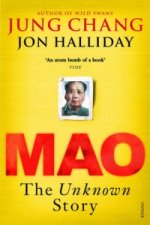
Mao: The Unknown Story
15.95 € -26 % -

History of Crete
16.05 € -13 % -

Armies of Agincourt
16.76 € -10 % -

Romano-Byzantine Armies 4th-9th Centuries
16.76 € -10 % -

Wittgenstein's Vienna
18.39 € -12 % -

Thirty Years' War
16.76 € -

Trespassers on the Roof of the World
13.41 € -28 % -

Henry V
33.33 € -10 % -

Henry VI
33.33 € -10 % -

Teutonic Knight
17.57 € -21 % -
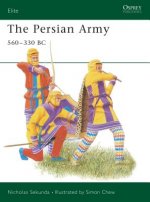
Persian Army 560-330 BC
19.30 € -10 % -

History of Early Modern Southeast Asia, 1400-1830
54.78 € -

Witchfinders
15.24 € -18 % -

Swordless Samurai
19.51 € -19 % -

French Armies of the Hundred Years War
16.76 € -10 % -

Streams of Gold, Rivers of Blood
46.24 € -7 % -

Greek War of Independence
19.61 € -

Margaret Beaufort
11.37 € -28 % -

Roman Army
22.25 € -21 % -

Medici Money
11.37 € -28 % -
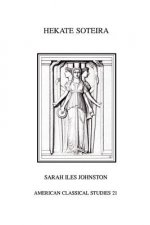
Hekate Soteira
57.83 € -

Medieval Building Techniques
31.91 € -9 % -

War of Wars
23.27 € -18 % -

Austrian Napoleonic Artillery 1792-1815
15.74 € -15 % -

Black Hawk Down
16.15 € -23 % -

In Europe
15.24 € -23 % -

Ten Myths About Israel
12.49 € -22 % -

Rise And Fall Of The Third Reich
21.95 € -22 % -
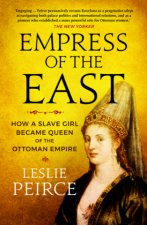
Empress of the East
13.41 € -28 % -

History of Nepal
29.16 € -18 % -

Diana: Her True Story - In Her Own Words
10.97 € -26 % -

Decline and Fall of the Roman Empire
5.89 € -21 % -

Beyond Band of Brothers
15.34 € -28 % -

The Balkans, 1804-2012
20.42 € -28 % -

Secret History
11.98 € -31 %
Collection points Bratislava a 2642 dalších
Copyright ©2008-24 najlacnejsie-knihy.sk All rights reservedPrivacyCookies



 15549 collection points
15549 collection points Delivery 2.99 €
Delivery 2.99 € 02/210 210 99 (8-15.30h)
02/210 210 99 (8-15.30h)